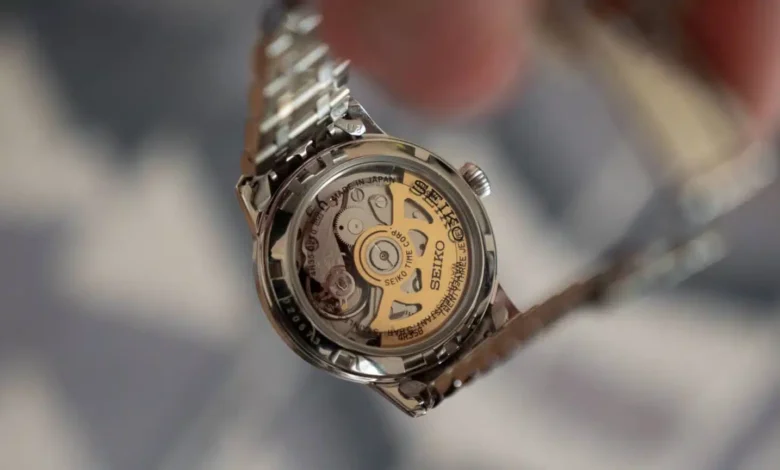The Essence of Japan Movement in Watches: A Blend of Innovation and Precision

Introduction
Japan has long been recognized as a leader in technological innovation, and its watchmaking industry is no exception. The term “Japan movement” refers to the watch mechanisms designed and produced by Japanese manufacturers. Known for their precision, reliability, and affordability, Japanese movements have significantly influenced global watchmaking. This article explores the history, characteristics, and key players in the japan movement highlighting why these timepieces are celebrated worldwide.
Historical Overview of Japan Movement
Early Developments
The roots of Japanese watchmaking can be traced back to the late 19th and early 20th centuries, with companies like Seikosha (now Seiko) emerging as pioneers. Initially, Japanese watchmakers learned from Swiss techniques, but they soon began to innovate and develop their own unique methods and technologies.
The Quartz Revolution
The introduction of the quartz movement by Seiko in 1969 marked a pivotal moment in watchmaking history. The Seiko Astron, the world’s first quartz wristwatch, revolutionized the industry by offering unprecedented accuracy and affordability. This innovation disrupted the Swiss-dominated market and established Japan as a key player in the global watch industry.
Key Characteristics of Japan Movement
Precision and Accuracy
Japanese movements are renowned for their precision. Quartz movements, in particular, offer exceptional accuracy, often deviating by only a few seconds per month. This level of precision has made Japanese quartz watches a popular choice for consumers seeking reliable timekeeping.
Technological Advancements
Japan is synonymous with technological innovation, and this is evident in its watch movements. Seiko’s Spring Drive, a hybrid of mechanical and quartz technologies, and Citizen’s Eco-Drive, which uses light as a power source, are prime examples of Japan’s commitment to advancing watch technology.
Durability and Functionality
Japanese watches are designed to be durable and functional. Brands like Casio, with its G-Shock series, have created watches that can withstand extreme conditions, making them popular among adventurers and military personnel.
Major Japanese Watch Brands
Seiko
Founded in 1881, Seiko has been a trailblazer in both quartz and mechanical watch movements. The brand’s innovations, such as the Kinetic movement and the Spring Drive, exemplify its dedication to blending traditional watchmaking with modern technology.
Citizen
Citizen, established in 1918, is known for its Eco-Drive technology, which harnesses light to power the watch, eliminating the need for battery replacements. This focus on sustainability and innovation has made Citizen a leading brand in the global watch market.
Casio
Casio, founded in 1946, is renowned for its digital watches and rugged designs. The G-Shock line, introduced in 1983, is famous for its toughness and multifunctionality, featuring models that include altimeters, barometers, and GPS capabilities.
Comparing Japan Movement to Swiss Movement
Craftsmanship and Design
While Swiss watches are often associated with luxury and intricate craftsmanship, Japanese watches prioritize functionality and innovation. Japanese watch designs tend to be more utilitarian, focusing on practicality and ease of use.
Manufacturing Techniques
Swiss watches are typically hand-assembled, contributing to their high cost and exclusivity. In contrast, Japanese watches benefit from advanced automation and mass production, which ensure consistency and reduce costs. This difference in manufacturing approaches makes Japanese watches more affordable while maintaining high quality.
Market Position
Swiss movements dominate the luxury segment, with brands like Rolex and Patek Philippe commanding premium prices. Japanese movements cater to a broader market, offering a wide range of products from affordable quartz watches to high-end mechanical timepieces.
Advantages of Japan Movement Watches
Affordability
One of the primary advantages of Japanese watches is their affordability. The efficient manufacturing processes and technological innovations allow Japanese brands to produce high-quality watches at competitive prices, making them accessible to a wider audience.
Innovation and Variety
Japanese watchmakers are known for their continuous innovation. Whether it’s Seiko’s hybrid movements or Citizen’s solar-powered technology, Japanese brands consistently introduce new features that enhance the functionality and appeal of their watches. This variety ensures that there is a Japanese watch to suit every taste and need.
Reliability
Japanese watches are celebrated for their reliability. The precision of quartz movements and the durability of models like the Casio G-Shock make these watches dependable choices for everyday wear and extreme conditions alike.
Considerations When Choosing a Japan Movement Watch
Intended Use
When selecting a Japanese watch, consider its intended use. For formal settings, a sleek Seiko Presage might be ideal. For outdoor activities, a rugged Casio G-Shock would be more appropriate. Citizen’s Eco-Drive models are perfect for those looking for an eco-friendly, low-maintenance option.
Budget
Japanese brands offer a wide range of prices, from affordable quartz models to sophisticated mechanical watches. Determine your budget and explore the options within that range to find the best watch for your needs.
Brand Preference
Each Japanese watch brand has its unique strengths. Researching the history, innovations, and reputation of Seiko, Citizen, and Casio can help you make an informed decision based on your preferences and requirements.
Conclusion
Japan movement watches embody the perfect blend of innovation, precision, and affordability. With a rich history of technological advancements and a commitment to producing reliable timepieces, Japanese brands like Seiko, Citizen, and Casio have made a significant impact on the watch industry. Whether you’re looking for a high-tech, eco-friendly watch or a durable, functional timepiece, Japanese movement watches offer something for everyone. As the industry continues to evolve, these watches remain a testament to the ingenuity and craftsmanship of Japanese watchmakers.






